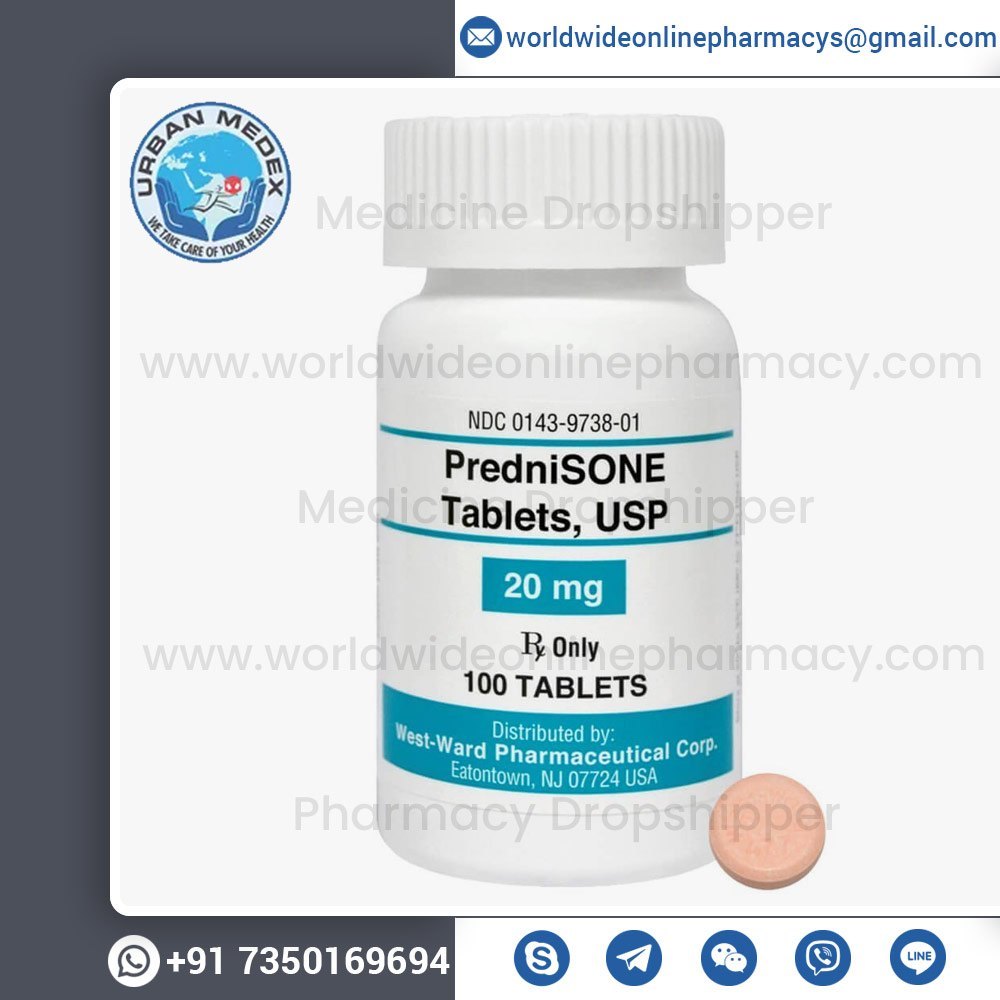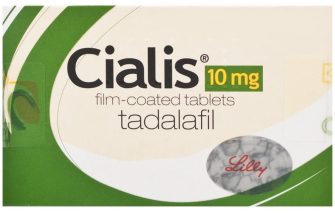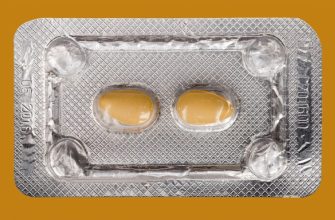If you’re considering using prednisone 100 mg tablets, it’s important to be informed about their uses, dosage, and potential side effects. Prednisone acts as a powerful anti-inflammatory and immunosuppressant medication, commonly prescribed for conditions such as asthma, arthritis, and allergies. Awareness of how this medication functions allows for better management of your health.
The typical dosage for adults may range from 5 mg to 60 mg per day, based on the specific condition being treated. However, starting with a lower dose and gradually increasing it can minimize side effects. For those taking prednisone for long-term treatment, your healthcare provider will likely suggest a tapering schedule to avoid withdrawal symptoms.
While prednisone is effective for reducing inflammation, it can lead to some side effects. Common issues include weight gain, mood swings, and increased risk of infections. Staying vigilant about your health during treatment enhances your experience. Regular check-ups are essential to monitor any adjustments needed in your dosage and to address any adverse effects you may encounter.
Consult with your healthcare provider before starting or stopping prednisone, as individual needs may vary significantly. A well-structured treatment plan, coupled with professional guidance, ensures maximize benefits while minimizing risks associated with this medication.
- Detailed Guide on Prednisone 100 mg Tablet
- What is Prednisone 100 mg?
- How It Works
- Usage and Precautions
- Indications for Using Prednisone 100 mg Tablet
- Dosage Guidelines for Prednisone 100 mg
- Possible Side Effects of Prednisone 100 mg
- Common Side Effects
- Serious Side Effects
- Interactions with Other Medications
- Common Interactions
- Monitoring Recommendations
- Precautions and Contraindications
- Avoid if You Have
- Monitor Side Effects
- How to Properly Store Prednisone 100 mg Tablets
- Patient Experiences and Testimonials
Detailed Guide on Prednisone 100 mg Tablet
Prednisone 100 mg tablet serves as a potent anti-inflammatory and immunosuppressive medication. Patients require careful monitoring and adherence to dosage guidelines to ensure safety and effectiveness.
Indications for Prednisone usage include:
- Autoimmune diseases
- Allergic reactions
- Inflammatory conditions such as arthritis
- Respiratory disorders like asthma
Dosage typically begins at a higher level, then gradually tapering down according to the physician’s directions. Regular follow-up appointments help assess progress and adjust the treatment plan.
Common side effects include:
- Weight gain
- Increased appetite
- Difficulty sleeping
- Mood changes
Less common but serious side effects may comprise:
- Osteoporosis
- Infections
- High blood sugar levels
- Gastrointestinal bleeding
To minimize side effects:
- Follow the prescribed dosage strictly.
- Maintain a balanced diet with proper nutrition.
- Engage in regular physical activity, as tolerated.
- Avoid alcohol and non-steroidal anti-inflammatory drugs (NSAIDs) without consulting a healthcare professional.
Long-term use requires monitoring for adrenal insufficiency. Tapering the dose gradually rather than sudden cessation is crucial to prevent withdrawal symptoms.
Consult a healthcare provider regularly to discuss any concerns and adjust treatment if necessary. Regular blood tests may help to monitor the medication’s impact on health.
What is Prednisone 100 mg?
Prednisone 100 mg is a corticosteroid medication. It reduces inflammation and suppresses the immune response. Doctors prescribe it for conditions such as allergies, asthma, rheumatoid arthritis, lupus, and certain skin disorders. This dosage helps manage severe symptoms effectively.
How It Works
Prednisone imitates natural hormones produced by the adrenal glands. It works by preventing the release of substances in the body that cause inflammation. This action leads to reduced swelling, redness, and pain. Patients often experience relief within a few days of starting treatment.
Usage and Precautions
Take Prednisone exactly as prescribed by your healthcare provider. Follow the dosing schedule carefully to minimize potential side effects, which can include increased appetite, mood changes, and sleep disturbances. Regular monitoring is essential, especially for long-term use. Always consult your doctor before making any changes to your medication routine.
Indications for Using Prednisone 100 mg Tablet
Prednisone 100 mg tablets are used primarily to treat inflammatory and autoimmune conditions. This medication helps reduce inflammation and suppress the immune response in various diseases.
Rheumatoid arthritis is a common indication, where prednisone alleviates joint pain and swelling. Patients with systemic lupus erythematosus benefit from its ability to control flare-ups and systemic symptoms.
Allergic reactions, such as severe asthma attacks or hives, may require prednisone for quick relief. Its anti-inflammatory properties assist in managing acute episodes effectively.
Chronic respiratory conditions, including COPD and asthma, often necessitate prednisone to decrease airway inflammation and improve respiratory function.
In cases of certain skin diseases, like eczema or psoriasis, prednisone can minimize flare-ups and control symptoms.
Prednisone proves beneficial in treating conditions such as multiple sclerosis and inflammatory bowel diseases like Crohn’s disease. By modulating immune responses, it provides much-needed symptom relief.
Moreover, it is indicated for certain types of cancer as part of chemotherapy regimens, leveraging its anti-inflammatory effects to enhance treatment efficacy.
Always consult healthcare providers to determine the appropriateness of prednisone for specific conditions and to discuss any potential side effects associated with its use.
Dosage Guidelines for Prednisone 100 mg
For adults, the typical starting dose of prednisone is 5 to 60 mg per day, depending on the condition being treated. For more severe conditions, such as autoimmune disorders or severe allergies, a healthcare provider may recommend initiating therapy with 100 mg. Always follow your healthcare provider’s instructions and never self-medicate.
Administration: Take prednisone with food to minimize gastrointestinal irritation. Swallow the tablet whole, without crushing or chewing it.
Adjustment of Dose: Your physician may adjust your dosage based on your response and any side effects experienced. Regular follow-up appointments are essential for monitoring your health.
Duration of Treatment: Short-term use may vary considerably, while long-term treatment may require gradual tapering down of the dosage to prevent withdrawal symptoms and manage side effects effectively.
Special Populations: Dosage adjustments may be necessary for individuals with liver disease, kidney issues, or those taking certain medications that interact with prednisone.
Adhere strictly to the prescribed dosage. If you miss a dose, take it as soon as you remember unless it is almost time for your next dose. In that case, skip the missed dose and return to your regular schedule. Never double the dose to catch up.
Consult with your healthcare provider if any side effects occur, such as unusual mood changes, weight gain, or increased blood sugar levels. Regular monitoring is recommended to ensure safe and effective use of the medication.
Possible Side Effects of Prednisone 100 mg
Taking Prednisone 100 mg can lead to various side effects. Common reactions include increased appetite, mood changes, and difficulty sleeping. Monitoring these changes helps manage your health effectively.
Common Side Effects
| Side Effect | Description |
|---|---|
| Increased Appetite | Often leads to weight gain if not balanced with diet and activity. |
| Mood Changes | Can cause irritability, anxiety, or mood swings. |
| Insomnia | Difficulty falling or staying asleep may occur. |
| Fluid Retention | Swelling in extremities may be noticeable due to water retention. |
| Increased Blood Sugar | May affect diabetic patients; monitoring is necessary. |
Serious Side Effects
While less common, some serious side effects require immediate attention. Observe for signs of severe allergic reactions, chest pain, or significant weight changes.
Interactions with Other Medications
When taking prednisone 100 mg, always consult your healthcare provider about potential interactions with your current medications. Some interactions may alter prednisone’s efficacy or increase the risk of side effects.
Common Interactions
- Non-Steroidal Anti-Inflammatory Drugs (NSAIDs): Combining these with prednisone raises the risk of gastrointestinal bleeding.
- Anticoagulants: Medications like warfarin may have altered effects, requiring careful monitoring and possible dosage adjustments.
- Antidiabetic Medications: Prednisone can increase blood sugar levels, which may necessitate changes in diabetes treatment plans.
- Corticosteroids: Using other corticosteroids alongside prednisone can amplify side effects like fluid retention and higher blood pressure.
Monitoring Recommendations
Monitor your response to medications closely. Consider checking for:
- Signs of gastrointestinal discomfort or bleeding.
- Blood sugar levels, especially if diabetic.
- Changes in bleeding patterns if on anticoagulants.
Always update your doctor with any new prescriptions or over-the-counter medications to maintain optimal treatment. A collaborative approach ensures safe use of prednisone alongside other therapies.
Precautions and Contraindications
Before taking Prednisone 100 mg, ensure you discuss your complete medical history with your healthcare provider. Inform them about any existing conditions such as diabetes, hypertension, liver disease, kidney disease, or heart problems. These conditions may affect how your body responds to the medication.
Avoid if You Have
Those with systemic fungal infections should avoid Prednisone. Taking this medication can suppress the immune response and may worsen the infection. Additionally, anyone allergic to prednisone or other corticosteroids must refrain from its use to prevent severe allergic reactions.
Monitor Side Effects
Stay alert for potential side effects, including mood swings, increased appetite, or gastrointestinal issues. Long-term use can lead to osteoporosis, so consider a bone density test if prescribed for extended periods. Regular check-ups help monitor for complications such as adrenal insufficiency. If you experience symptoms like extreme fatigue or dizziness, contact your healthcare provider promptly.
Consult your doctor before discontinuing Prednisone. Gradual tapering is often necessary to prevent withdrawal symptoms. Always discuss any medications, supplements, or herbal products you’re taking, as interactions may occur.
How to Properly Store Prednisone 100 mg Tablets
Store Prednisone 100 mg tablets in a cool, dry place away from direct sunlight. The ideal temperature range is between 20°C to 25°C (68°F to 77°F). Avoid areas with high humidity such as bathrooms and kitchens.
Keep the tablets in their original container, tightly closed to protect them from moisture and air exposure. Check periodically for any signs of moisture or damage to the packaging.
Ensure that the medication is out of reach of children and pets to prevent accidental ingestion. Consider placing it in a locked cabinet if necessary.
Never store prednisone in places like the refrigerator, as this can damage the tablets. If traveling, keep them in a temperature-controlled environment during transit.
Always follow any specific storage instructions provided by your pharmacist or on the medication label. Discard any expired or unused tablets properly, as per local regulations or pharmacy guidelines.
Patient Experiences and Testimonials
“I started taking Prednisone 100 mg during a severe asthma flare-up. Within a couple of days, I noticed a significant improvement in my breathing. The tightness in my chest eased, and I could resume my normal activities without gasping for air,” shares Alex, a 34-year-old patient.
Sarita, aged 45, says, “After a diagnosis of lupus, my doctor prescribed this medication. The initial dose was daunting, but I felt stronger within a week. The swelling in my joints decreased, and I could finally sleep through the night without discomfort.”
Many patients appreciate the quick action of Prednisone in addressing inflammation. “It worked fast for my skin condition,” states Mark, who battled severe eczema. “The itchiness stopped almost instantly, and I could see the redness fading within days.”
However, not all experiences are entirely positive. Karen, 52, recalls, “While it helped my arthritis significantly, I faced some side effects. Weight gain and mood swings were challenging. Managing those symptoms alongside the benefits required open communication with my doctor.”
Patients recommend keeping a close dialogue with healthcare providers for monitoring side effects. “I found adjusting my lifestyle, including a better diet and exercise, helped mitigate the unwanted changes,” suggests Danny, who has been on Prednisone for chronic sinusitis.
Sharing experiences often highlights the importance of individual responses to medication. “My doctor warned me about potential complications. I decided to follow a strict regimen and promptly report any unusual symptoms. This proactive approach made a difference in how I handled the treatment,” notes Jessica, whose battle with multiple sclerosis led her to use Prednisone.
In summary, personal experiences with Prednisone reflect a broad spectrum of outcomes. Each patient’s journey emphasizes the need to balance treatment benefits with monitoring for side effects, fostering a supportive environment for better health management.






